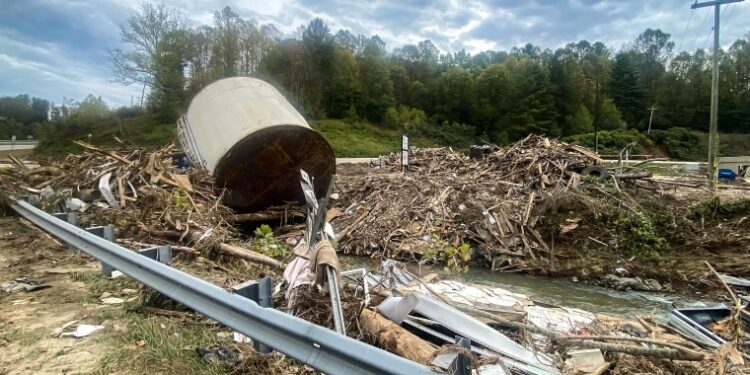BAKERSVILLE, N.C. — In Mitchell County, a mountainous and remote North Carolina region made even more remote in the wake of Hurricane Helene, residents are trying to make sense of the unthinkable.
“Where do we go?” asked Susan Allen Wroblewski, 70, who also calls Sarasota, Florida, home a few months out of the year. “We got hit the worst. It’s been stressful. Just not having power and not being able to communicate and get in touch with friends.”
Some Bakersville residents took the rebuilding effort into their own hands by helping to clear and repair roads this week, Mitchell County Deputy Austin Duncan said Friday.
“We’ve had people show up with chainsaws and heavy equipment asking where can they help,” he said.
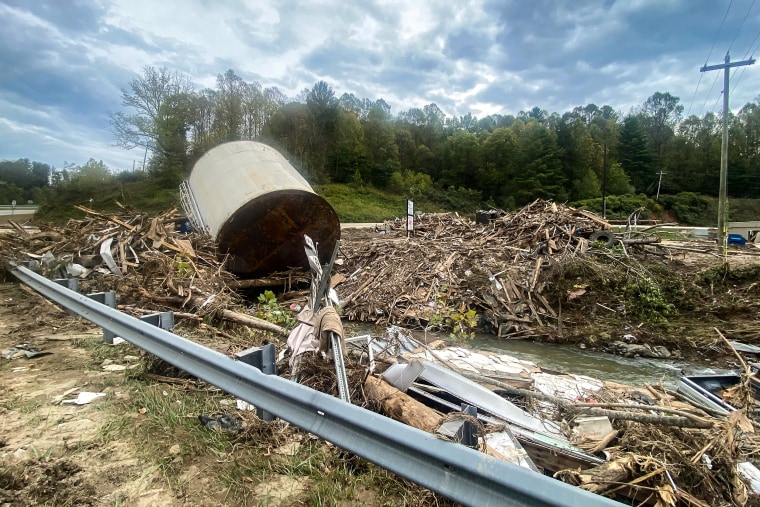
Thousands of trees were toppled in Helene’s fury, mangled train tracks were left discarded on river beds and school buses were blown away.
The Mitchell County building was flooded, as well as the sheriff’s office and transportation authority. For the foreseeable future, deputies will work out of decommissioned Bowman Middle School, Duncan said.
Hurricane Helene and its unrelenting floods killed at least 223 people across the Southeast, and the death toll could continue to climb as dozens of people remain unaccounted for since the storm made landfall in Florida on Sept. 26.
Throughout western North Carolina, including Asheville and surrounding Buncombe County, uprooted homes, submerged vehicles and sunken roads illustrate the devastation inflicted by an unforgiving hurricane.
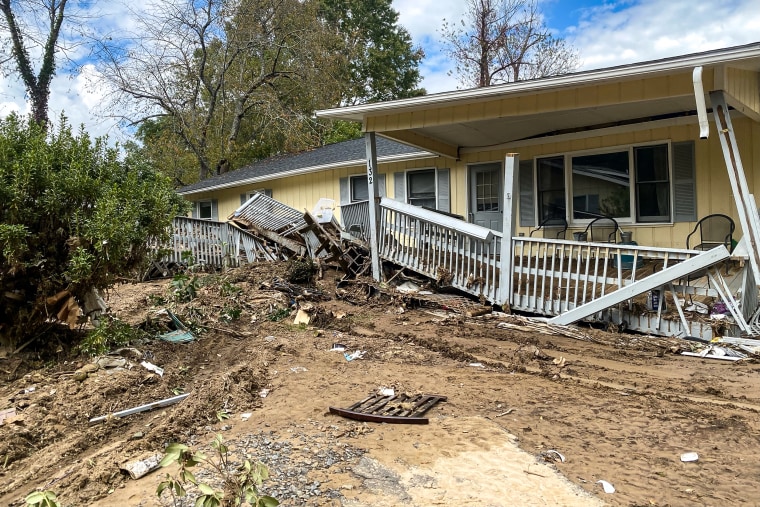
Access into and out of Black Mountain has been more of a challenge, and here, too, homes were lifted and discarded into creeks.
Toys, wallets, tires, milk containers and other personal belongings are strewn about haphazardly, tossed far from where they once were.
Black Mountain resident Diane Douglas, 58, has been cleaning out her unlivable home. Because she didn’t have flood insurance, she doesn’t know what the future holds.
High water from a nearby dam forced a storage unit from across the street into a modular home, which then rammed into her house next door.
“It’s just sweat work and equity,” Douglas said through tears. “It’s just too much.”
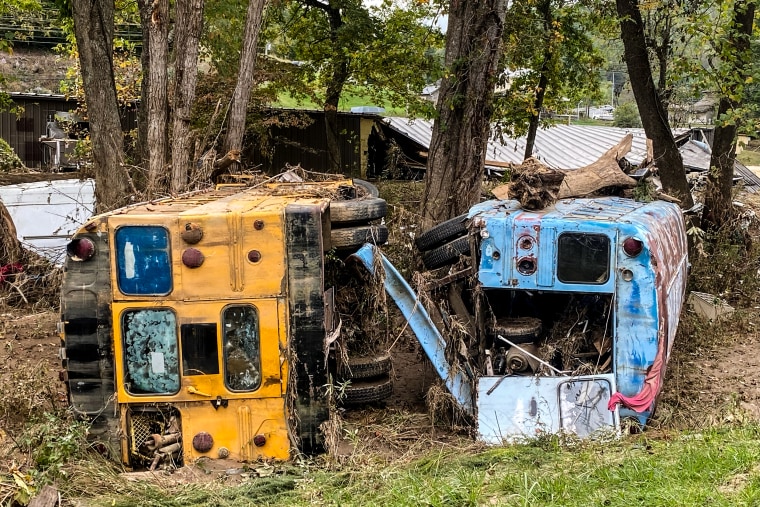
Douglas, whose shirt and shorts were covered in mud, said she operates a business from home but doesn’t earn much money.
“It’s heartbreaking,” she said.
Behind her house was a group home for adults with disabilities.
Of the yellow-colored buildings that stood there one week ago, one was thrown up river, another was uprooted and the remaining two ripped apart.
Empty lots, bricks and old vinyl albums are all that remain.
A once heavily traveled road next to a creek in Black Mountain sunk during the storm, leaving it undrivable and hard to cross.
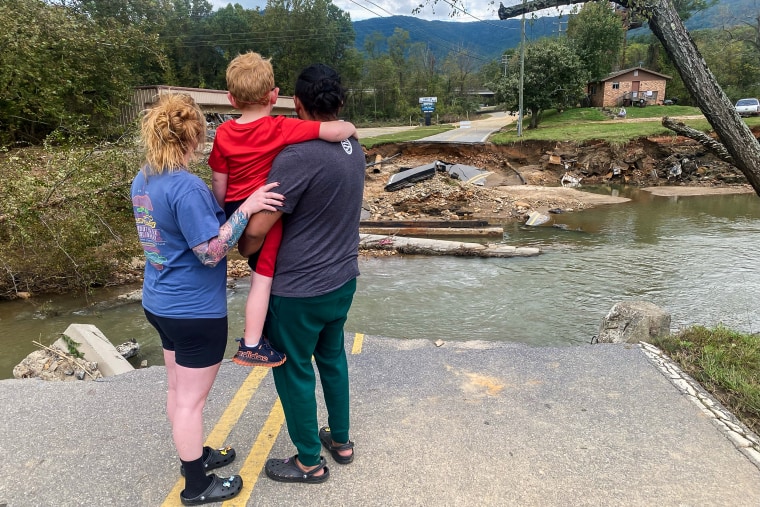
“We have to walk through our neighbor’s house to reach our house,” said 32-year-old Dylan Shook, whose driveway and mailbox were also thrown aside.
Ignacio Espino, 27, stood in awe on the edge of town overlooking yet another part of a road that took a steep fall into the river below.
Espino waited out the hurricane at Black Mountain Academy, where he works with kids with autism.
“I’m in shock,” he said.

